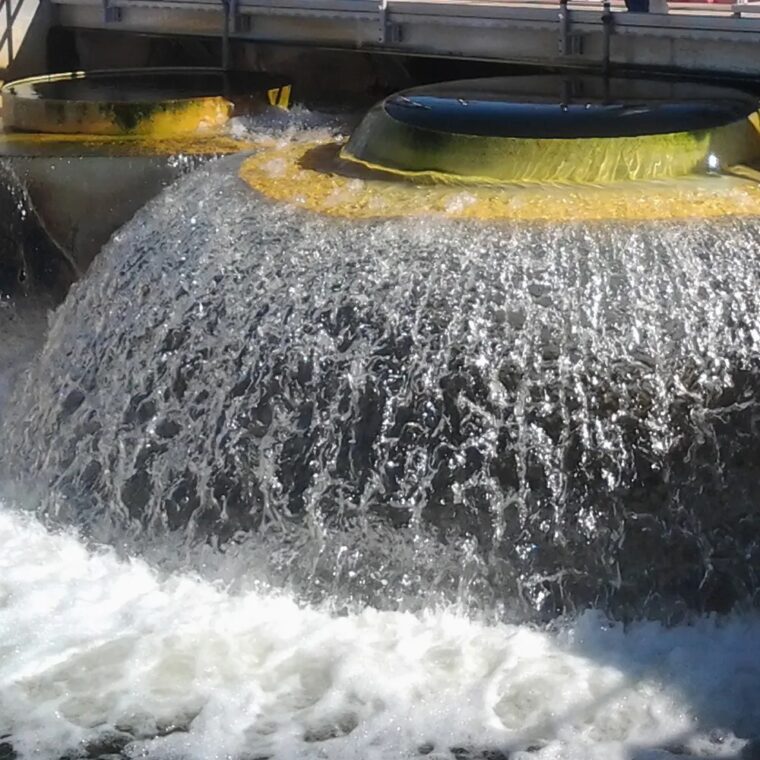
As part of the state’s efforts to conserve water, the Arizona Department of Environmental Quality (ADEQ) has released a draft of rules for a program to reuse treated wastewater. Already several years in the making, Arizona’s Advanced Water Purification Program aims to convert treated wastewater into safe, reliable drinking water. ADEQ is seeking public input on the proposed regulatory framework as it moves to implement the water-saving solution.
“Arizona has a long history of smart water management, and we must continue that legacy in order to secure a prosperous future for all,” Gov. Katie Hobbs said in a press release. “The Advanced Water Purification Program is one of many important tools we have to improve our water sustainability. This proposal will undoubtedly strengthen our already robust water systems and keep us on the right track.”
The urgency of this initiative is underscored by Arizona’s ongoing water challenges. The historically dry state has seen low water levels in the Colorado River system reservoirs, particularly Lake Mead, in recent years. In 2022, Arizona faced a substantial 21% reduction in its Colorado River water allocation, representing a 16% cut from previous drought restrictions. Meanwhile, Arizona is among the top 10 fastest growing states in the nation, but with limited water, the situation has become so dire that some communities have had their taps turned off.
Advanced Water Purification offers a promising solution to water scarcity. By safely reusing treated wastewater, AWP can help increase water availability in areas facing shortages and reduce dependence on limited traditional water sources. And as climate change threatens to exacerbate drought, approaches like AWP are gaining increasing attention from policymakers.
“To adapt to this historic drought, we must turn to proven solutions to better conserve and reclaim water,” U.S. Senator and former Astronaut Mark Kelly said. “We’ve used these Advanced Water Purification techniques on the International Space Station for decades, and today’s proposal is an important step to bring this innovative technology to Arizona and make our water usage more self-reliant and sustainable.”
The AWP Program, detailed in ADEQ’s roadmap, provides an outline for implementing direct potable reuse in Arizona. The technology behind AWP involves a multi-step process that purifies treated wastewater to meet or exceed drinking water standards. This typically includes treatment methods such as reverse osmosis, ultraviolet light disinfection and advanced oxidation. There are also standards for safety and governance, which are clarified in the recently published draft rules.
The proposed AWP rules introduce a three-tiered approach to chemical monitoring and control. Tier 1 focuses on regulated contaminants under the Safe Drinking Water Act, requiring quarterly monitoring for these substances. Tier 2 addresses AWP-specific contaminants that, while not federally regulated, may pose health concerns. These are monitored monthly, with strict protocols for responding if the amount detected exceeds a maximum threshold. Tier 3 involves flexible safety indicators that can be tailored to each specific AWP facility based on any local pollution concerns.
To prevent contamination, the rule mandates continuous online monitoring at various control points throughout the treatment process. Levels of chemicals and pathogens are monitored in real time. The rule also requires a plan to eliminate contaminants of concern before they enter the wastewater system. Additionally, the rule requires AWP providers to implement early warning systems to detect and respond to potential chemical peaks or other water quality issues promptly.
Public support for AWP is growing, as evidenced by recent surveys. Results from two blind surveys conducted in April 2023 and May 2024, involving 2,314 Arizona residents, showed broad concern about current and future water supply and support for AWP as a viable part of the solution, according to the ADEQ.
Now, it is the public’s turn to provide feedback during a 30-day comment period. ADEQ is seeking technical input and feedback from stakeholders and residents on the draft rule. From July 9, through Aug. 7, 2024, interested parties can submit comments through an online form.
As the process moves forward, ADEQ Cabinet Executive Officer Karen Peters emphasized the importance of this initiative: “This draft rule is a significant milestone in our journey towards a sustainable and resilient water supply for Arizonans.”
Photo courtesy of amwua.org
The post Arizona releases rules for reusing treated wastewater appeared first on Government Market News.

